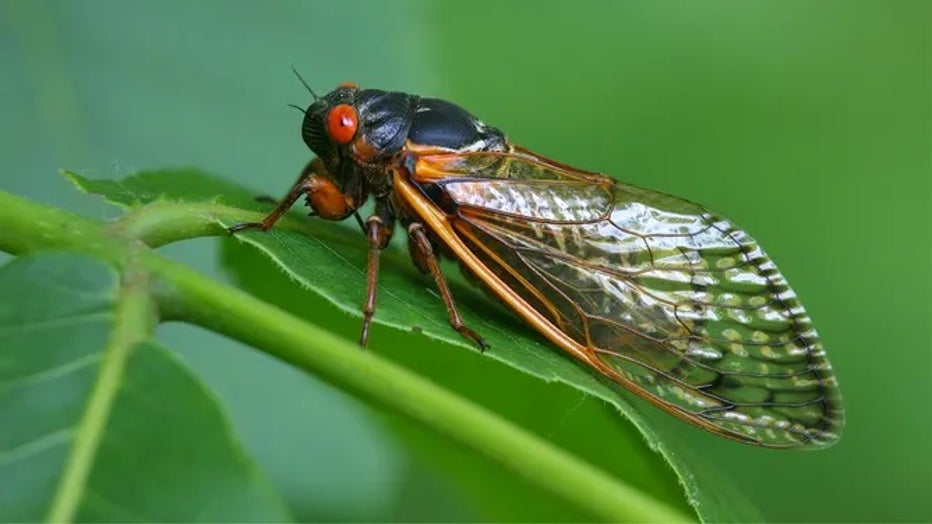Mysterious bug bites could be from mites feeding on cicada eggs

Electron Microphotograph of Oak Itch Mite. (USDA / FOX Weather)
Insects called "oak leaf itch mites" may be to blame for a spread of red bug bites this summer – and cicadas are serving as unwitting accomplices.
Also known by their scientific name Pyemotes herfsi, the mites usually feed on fly larvae nesting on pin oak leaves, according to the University of Maryland Extension.
The mites then either fall from the tree or are carried long distances by the wind. During their travels, they land on animals, such as humans, which they proceed to bite.
In addition to fly larvae, the mites have also been known to feed on cicada eggs in oak trees. This means that, when many cicada eggs are available, the more mites there may be to bite.
This becomes quite a mite-y correlation during a year like 2024, when trillions of cicadas from both the 13-year Brood XIX group and 17-year Brood XIII group laid their eggs.
LARGE WASPS EMERGE IN TEXAS THIS SUMMER TO HUNT CICADAS
With so many cicada eggs available for food, the more mites there are to feast, disperse and then land on humans to bite.
Such bites have been reported in places such as Ohio, Kansas and Washington, D.C. However, the UMDE said the first confirmed report of mites and cicadas working in itchy tandem occurred in late summer 2007 in the Chicago area.

Close-up of a red-eyed Cicada resting on a green leaf (iStock / FOX Weather)
"Brood XIII periodical cicadas emerged earlier in the year and laid large numbers of eggs in the terminal branches of many deciduous tree species in the outbreak area," according to an Illinois Natural History Survey Technical Report.
"It appears that this abundance of cicada eggs served as the host upon which populations of P. herfsi mites amplified to outbreak levels…" researchers noted.
UMDE said symptoms from the mite bites, which include raised red areas with a small blister at the center, usually appear 10-16 hours after exposure. It recommends leaving the bites alone, as scratching may lead to bacterial infections.
Instead, experts recommend using anti-itch products and, should an infection occur, consulting a doctor.

